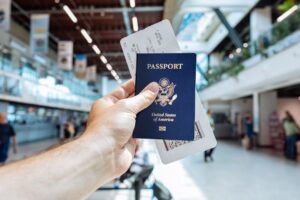Becoming a Brazilian citizen is a significant and life-changing goal, but the path can often feel confusing and overwhelming. Many applicants face uncertainty about eligibility, complex legal requirements, and the fear of making costly mistakes. If you’re wondering how to become a Brazilian citizen, this guide will provide you with a clear, step-by-step roadmap, expert insights, and practical tips to navigate the process with confidence.
We’ll walk you through the essential documentation, eligibility criteria, common pitfalls, and insider advice from certified Brazilian immigration lawyers. With this knowledge, you can avoid delays and setbacks, making your journey to Brazilian citizenship as smooth as possible.
Eligibility and Documentation Requirements
Understanding whether you qualify for Brazilian citizenship and gathering the correct documentation is the crucial first step. Eligibility can depend on factors such as residency duration, family ties, or marriage, each with specific legal nuances.
- Residency Requirements: Most applicants need to demonstrate continuous residence in Brazil for a legally defined period.
- Language Proficiency: Proof of basic Portuguese language skills is often required to ensure integration.
- Criminal Background Check: Clean records from Brazil and your home country are necessary for eligibility.
- Documentation: Includes passports, birth certificates, proof of residence, and other official documents.
Tip: Official documentation must be current, translated into Portuguese if necessary, and legalized. For authoritative details, consult the Brazilian Ministry of Foreign Affairs.
Step-by-Step Citizenship Process
Knowing the exact steps helps reduce anxiety and ensures you don’t miss critical requirements. Here’s a simplified overview:
- Submit your application to the Federal Police or the Ministry of Justice, depending on your category.
- Provide all required documentation and evidence supporting your eligibility.
- Attend an interview or examination, including a Portuguese language and Brazilian culture test if applicable.
- Wait for the legal review and approval of your application.
- Take the citizenship oath in a formal ceremony to finalize the process.
Outvisa’s certified lawyers specialize in guiding applicants through each of these steps, ensuring your paperwork is complete and compliant with Brazilian law.
Common Pitfalls and How to Avoid Them
Many applicants face challenges that delay or jeopardize their citizenship. Being aware of these common mistakes can save you time and stress:
- Incomplete or incorrect documentation: Missing translations, expired papers, or overlooked certificates can cause rejections.
- Misunderstanding eligibility criteria: Assumptions about residency time or family ties without legal verification.
- Failing language or cultural exams: Lack of preparation can lead to delays or denials.
- Ignoring legal updates: Brazilian immigration laws change, and staying informed is critical.
Insider tip: Consult official updates at the Federal Police website to stay current.
Practical Tips and Checklist for Applicants
- Start early: Gather documents well before application deadlines.
- Use certified translations for all foreign documents.
- Prepare for language and culture exams through courses or practice tests.
- Keep copies of every document submitted and received.
- Consult with immigration experts like Outvisa to review your case.
Frequently Asked Questions
What are the main ways to qualify for Brazilian citizenship?
Most applicants qualify through residency, marriage to a Brazilian citizen, or descent. Each path has specific requirements regarding time spent in Brazil and documentation.
How long does the Brazilian citizenship process usually take?
Processing times vary based on case complexity and government workload. Working with experienced lawyers can help prevent unnecessary delays.
Can I keep my original nationality after becoming Brazilian?
Brazil allows dual citizenship in many cases, but it depends on your home country’s laws. Outvisa provides guidance on managing dual citizenship issues.
What documents are essential for the citizenship application?
Key documents include your birth certificate, proof of residency, criminal background checks, and proof of language proficiency. All must be valid and properly legalized.
How can Outvisa assist with the citizenship application?
Outvisa’s team of certified Brazilian immigration lawyers offers personalized consultation, document review, legal compliance assurance, and step-by-step support throughout the process.
Conclusion
Becoming a Brazilian citizen is a rewarding journey that requires careful preparation, understanding of legal requirements, and attention to detail. By following this step-by-step guide, avoiding common pitfalls, and leveraging expert advice, you can confidently navigate the complex citizenship process.
Reach out to us for personalized consultation based on your specific requirements.







